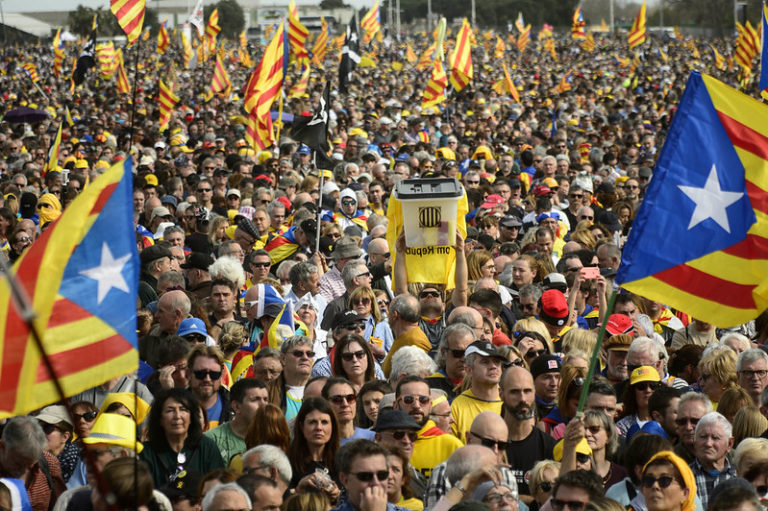
In December 2020, the Catalan National Assembly’s National Board passed a resolution restating that both the causes against the pro-independence movement and all open court cases arising from the protests against the Spanish authorities’ repression form a single general cause of political repression of more than 2,850 victims. The position of the organization is that this general cause must be annulled because it violates fundamental rights at its inception.
Assemblea thus advocates a strategy that seeks the annulment of these trials by the European courts.
The fact that International courts and organizations assert that there have been human rights violations by the Spanish authorities against the Catalan pro-independence movement strengthens the legitimacy of the political cause of the independence of Catalonia, within the theoretical framework of a just cause for secession.
The need for an amnesty law has long been defended by a sector of the Catalan pro-independence movement. The idea of amnesty is linked to a political agreement that either resolves or starts a process of resolving the political conflict that has motivated the repressive reaction of the state. Thus, in establishing the conflict resolution agreement, one of the conditions is the need to release political prisoners and the annulment of legal proceedings.
The conditions for an amnesty are not currently present.
The conflict is in the middle of an extremely repressive phase by the Spanish state against the Catalan pro-independence movement, and what needs to be done is precisely to continue claiming the right of the people of Catalonia to be independent and denounce how the state does not even respect its autonomy nor the fundamental rights of the people of Catalonia, as it uses repressive methods akin to authoritarian states such as Turkey.
The present situation calls for maintaining the democratic and peaceful confrontation with the Spanish state, a state that does not recognize Catalonia as a nation, which seeks cultural and linguistic assimilation, and applies criminal law against peaceful activists for political purposes.
Seeking an amnesty before achieving political goals is counterproductive, as it involves focusing the objectives of the struggle precisely on the repressive mechanisms the state uses to combat aspirations for national liberation.
Furthermore, the Spanish state has no incentive to grant an amnesty, as the desired effects of the repression have so far been reached: the movement has been stymied through the imprisonment of our leaders for defending legitimate and democratic aspirations.
There will never be a sufficient majority in the Spanish Parliament to pass an amnesty law such as that proposed by certain sectors of the Catalan pro-independence movement, as it would involve recognizing human rights abuses by the state.
On the other hand, in the highly unlikely case of approval, it would mean nullifying judicial rulings and Spanish administrative or governmental responsibility for the behaviour of Spanish security forces and political leaders in the repressive actions carried out since 2017.
At the international level, amnesties are often seen as an instrument within the framework of what is known as transitional justice, after leaving behind periods of conflict, as was the case in South Africa in 1990, with the ad hoc Truth and Reconciliation Commission. Therefore, calling for an amnesty implies the risk of projecting internationally that a solution to the conflict is taking place without the need to modify the current Constitutional status quo in Spain, while diverting attention from the structural reasons for the conflict itself.
It is a similar phenomenon to the so-called “negotiating table” between the Spanish and Catalan governments, which was highly counterproductive for the pro-independence movement abroad. Instead of reinforcing the idea of “unresolved conflict”, it diminishes the attention of the general public and international interlocutors in relation to Catalonia. At the same time, it promotes the current Spanish Constitutional status quo as “acceptable” in the event of an end to repression.
Finally, an amnesty would suit this case if the legitimacy of the political struggle that has led to the repression is recognized by the State and is therefore accompanied by a negotiation process to politically resolve the claims made which motivated the repressive response by the state. The current Spanish government and all those preceding it, have so far have made it very clear that they will never negotiate on any scenario that could allow the independence of Catalonia based on the right to self-determination.
For all this, it is important to emphasize internationally that there can be no amnesty without a political solution, and there can be no political solution without respect and recognition by the Spanish state of the right to self-determination of the people of Catalonia and its legitimate aspiration to become an independent state.